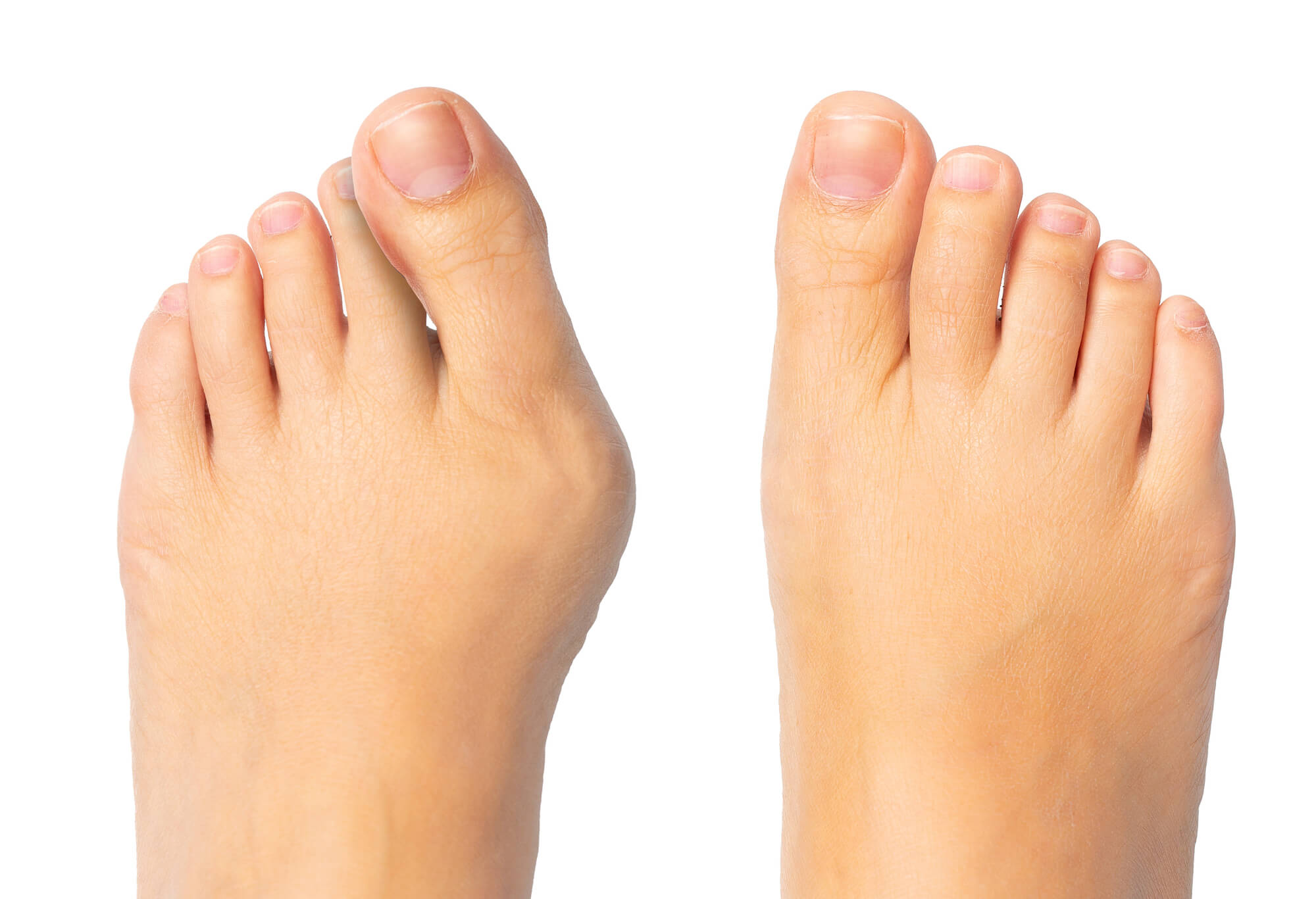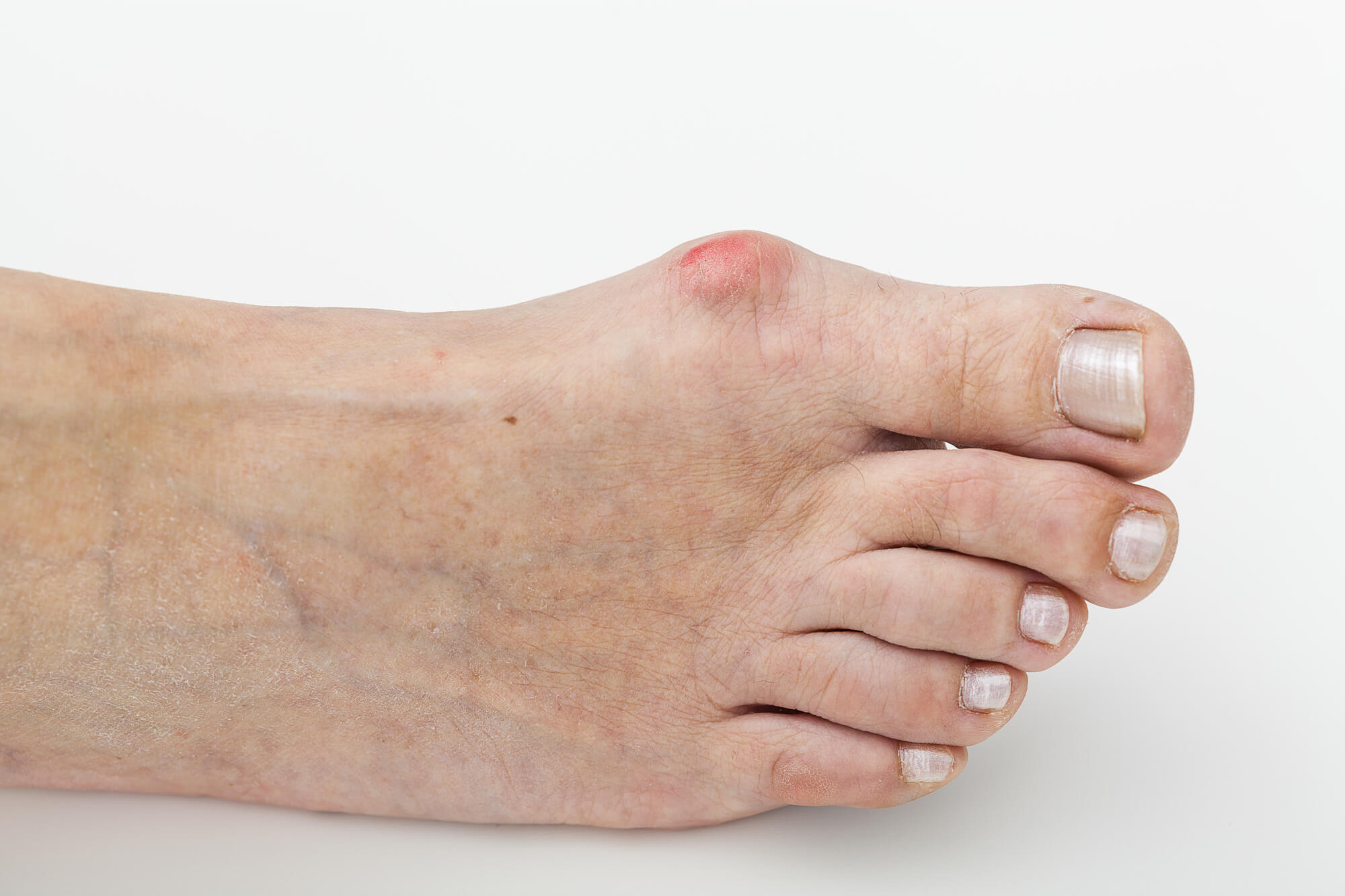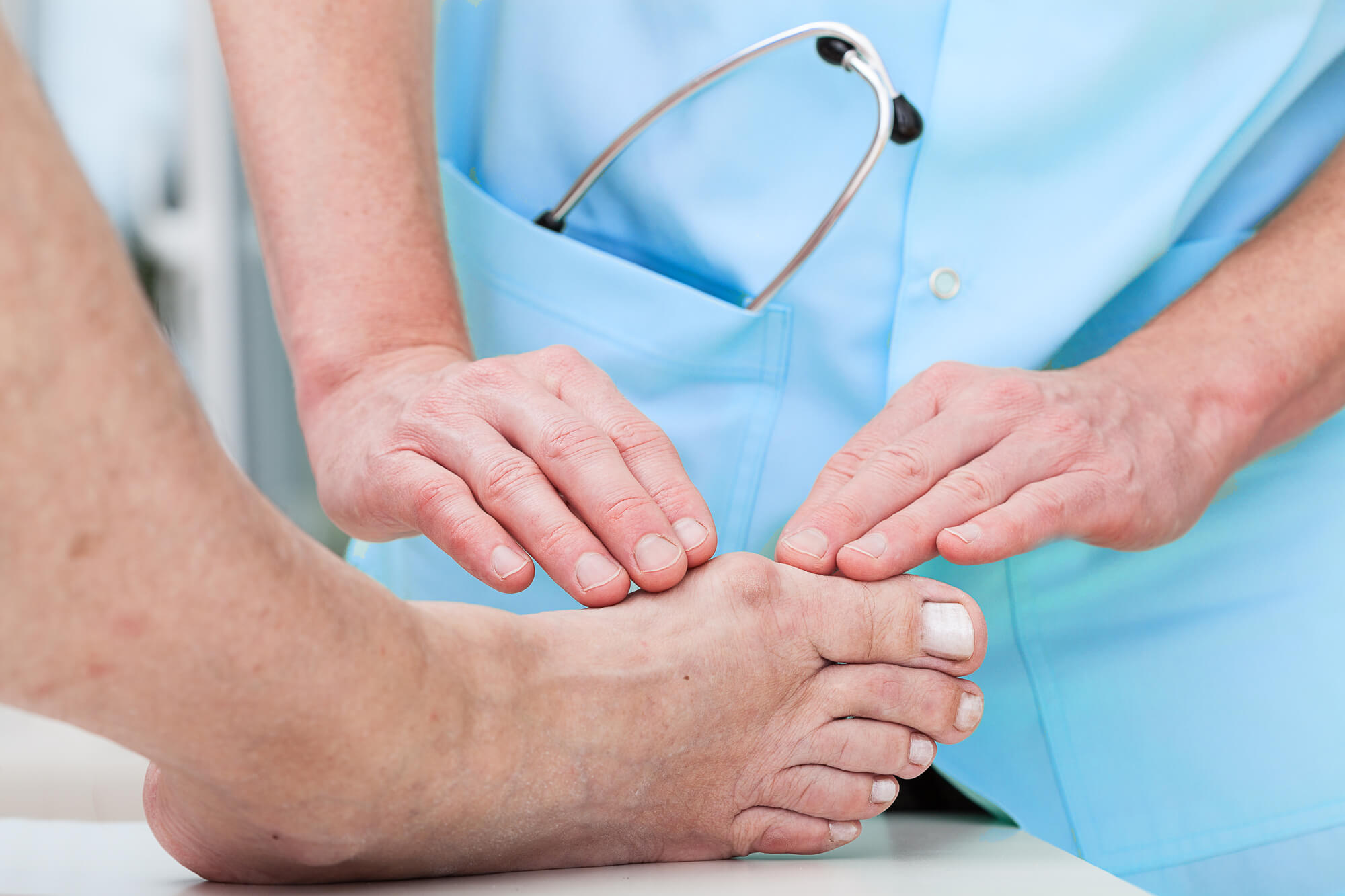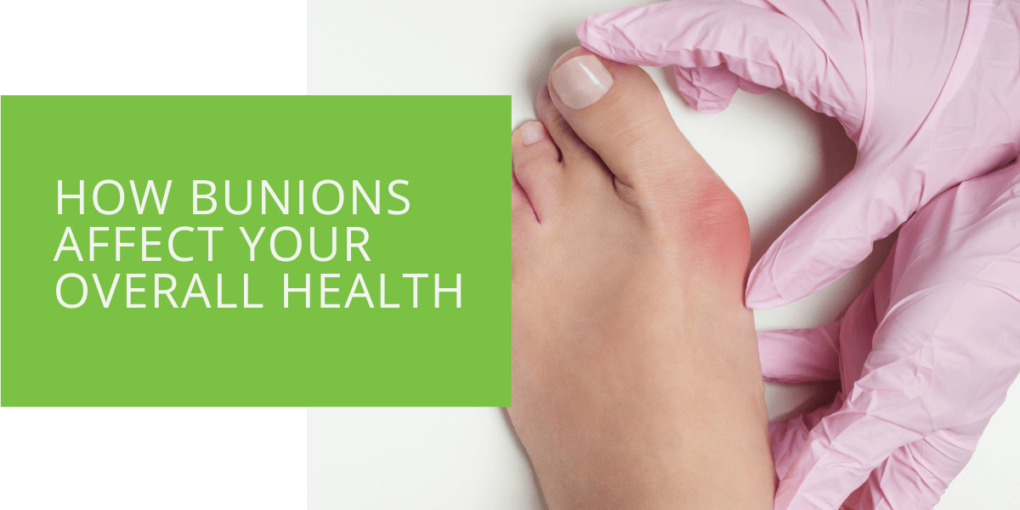How Bunions Affect Your Overall Health
Bunions, also known as hallux valgus, are bony deformities at the base of the big toe joint. Although often considered a cosmetic concern, bunions can cause pain, and discomfort, and lead to a host of foot and ankle problems. In this article, we'll discuss how bunions can affect your overall health and what you can do to manage them.
What Are Bunions?
Bunions are a common foot problem, with about 23% of adults aged 18-65 and 36% of those over 65 years old having them. They usually develop over time as a result of wearing tight shoes, such as high heels, that force the big toe into an unnatural position. Over time, this pressure causes the big toe to bend towards the other toes, resulting in a bony protrusion that can cause pain and inflammation.
Symptoms of Bunions
The symptoms of bunions vary depending on the severity of the deformity. Some people may not experience any symptoms, while others may experience:
- Pain and discomfort: Bunions can cause a dull, aching pain in the big toe joint, which can be aggravated by walking or wearing tight shoes.
- Swelling and redness: The bony bump can become inflamed and red due to pressure and friction from footwear.
- Difficulty with footwear: Bunions can make it difficult to find comfortable shoes that fit properly, which can result in calluses, corns, and hammertoes.

How Bunions Affect Your Feet
Bunions can cause changes in the way you walk, stand, and move, which can result in a host of foot and ankle problems. Some of the most common problems associated with bunions include:
- Foot deformity: Bunions can cause the big toe to turn inward, which can lead to other toe deformities such as hammertoes.
- Development of other foot problems: Bunions can lead to other foot conditions, such as metatarsalgia, which is a pain in the ball of the foot due to pressure on the metatarsal bones.
- Changes in gait: Bunions can cause changes in the way you walk, which can lead to joint pain and muscle fatigue.
- Development of arthritis: Bunions can increase the risk of developing arthritis in the big toe joint, which can cause pain, stiffness, and loss of mobility.
How Bunions Affect Your Quality of Life
Bunions can have a significant impact on your quality of life, both physically and emotionally. Here are some of the ways bunions can affect your daily life:
- Limitations in physical activity: Bunions can make it difficult to engage in physical activity, such as running, walking, or even standing for long periods of time.
- Impact on footwear choices: Bunions can limit your options for comfortable footwear, which can make it challenging to find shoes that fit properly and look good.
- Emotional and psychological effects: Bunions can cause feelings of self-consciousness and embarrassment, especially if the bony bump is large and noticeable.

How Bunions Can Affect Your Overall Health
Bunions can have a ripple effect on your overall health, especially if left untreated. Here are some of the ways bunions can affect your health:
- Increased risk of falls and injuries: Bunions can affect your balance and increase the risk of falls and other injuries.
- Impact on posture and balance: Bunions can cause changes in your posture and gait, which can lead to back pain and other postural problems.
- Development of secondary conditions: Bunions can lead to other foot conditions, such as corns, calluses, and hammertoes, which can cause additional pain and discomfort.
Treatment Options for Bunions
Treatment for bunions depends on the severity of the deformity and the symptoms you're experiencing. Here are some of the treatment options your podiatrist may recommend:
- Non-surgical treatments: If your bunion is mild to moderate, your podiatrist may recommend non-surgical treatments such as wearing wide, comfortable shoes, using orthotics or inserts, or physical therapy to relieve pain and improve foot function.
- Surgical options: If your bunion is severe and causing significant pain or deformity, your podiatrist may recommend surgery to correct the problem. There are several surgical procedures available, including bunionectomy, which involves removing the bony protrusion and realigning the joint.

Prevention of Bunions
Prevention is the best way to avoid bunions and other foot problems. Here are some tips for preventing bunions:
- Wear proper footwear: Choose shoes that fit well, have a wide toe box, and provide adequate support for your feet.
- Strengthening exercises: Strengthening exercises can help improve foot and toe strength and flexibility, reducing the risk of bunions.
- Regular foot care and check-ups: Regular check-ups with your podiatrist can help detect foot problems early and prevent the development of bunions.
When to See a Podiatrist
If you're experiencing foot pain, swelling, or difficulty with footwear, it's essential to seek medical attention from a podiatrist. The earlier you seek treatment, the better the outcome will be. A podiatrist can diagnose your condition and recommend the best treatment options.
Conclusion
Bunions can have a significant impact on your overall health and quality of life. If you're experiencing symptoms of bunions, it's essential to seek medical attention from a podiatrist. With early intervention and proper treatment, you can manage your symptoms, reduce the risk of complications, and improve your foot function and mobility. Remember, prevention is the key to avoiding bunions and other foot problems. Take care of your feet, and they'll take care of you.

